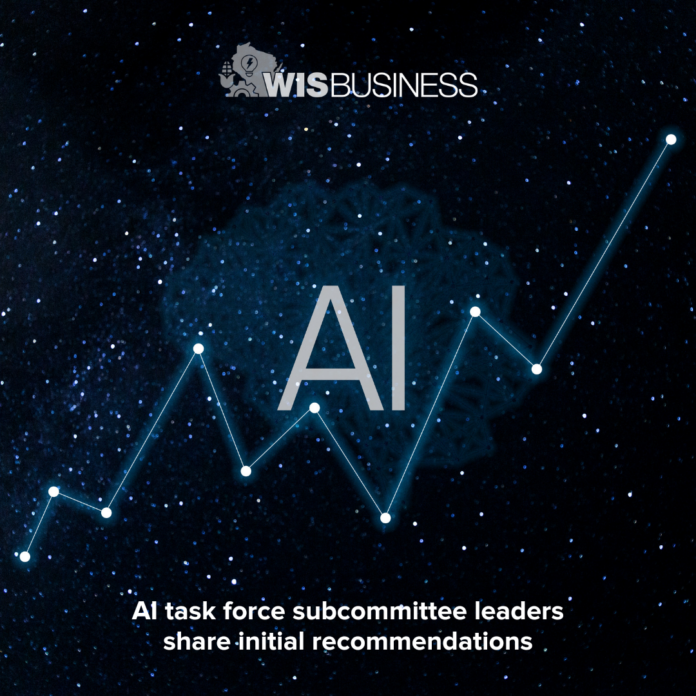Subcommittee leaders on the Governor’s Task Force on Workforce and Artificial Intelligence say Wisconsin should invest in tax credits for AI development, assistance for workers displaced by the technology and industry-informed skills training.
During yesterday’s virtual meeting of the task force, representatives of the group’s three subcommittees shared updates on their work as they prepare to submit recommendation reports by Feb. 5.
Trina Zano, chief IT officer for the state Department of Administration, said the Industries, Occupations and Skills subcommittee identified health care, government and manufacturing as the top three industries most likely to be impacted by AI.
“We see software engineering, predictive analytics and market research being the areas of opportunity, given the AI landscape and the data availability that we know exists today,” she said yesterday.
She said subcommittee members see AI as more likely to “augment” jobs rather than reduce or eliminate them entirely, and believe the state should prioritize funding for industry incubators to foster entrepreneurship and innovation for the technology. Zano also raised the possibility of driving growth in AI through tax incentives.
“Certainly we’ve seen tax credits and incentives to draw workers and companies into different spaces,” she said. “There’s no reason why it wouldn’t work in the AI space as well.”
Meanwhile, Midpoint Ventures Managing Partner Israel Squires said the Workforce Development and Educational Solutions subcommittee has identified access to broadband and related training as a top priority.
He shared a number of ideas members believe are most likely to succeed: requiring computer science and data science courses for all college majors; establishing a “micro credential” AI program for K-12 and higher education; investing in AI innovation and resource centers; and K-12 mandates for digital literacy, cybersecurity and AI training.
“As more AI tools become available, having informed decision makers will enable Wisconsin businesses and government to be able to evaluate the potential benefits of adoption … Having a well-informed public will empower individuals to productively use these new technologies and minimize the risks involved,” he said.
Also during the meeting, Milky Way Tech Hub founder and CEO Nadiyah Johnson discussed forming partnerships between educational institutions and technology developers to create a standardized curriculum for AI information.
But even with investments into skills training and education, Johnson acknowledged certain workers will lose their jobs as the economy is affected by widespread adoption of AI. She argued that transition is already underway.
“We’re living it,” she said. “AI is currently displacing some workers and will continue to do so, and we need to make sure that these workers are well taken care of and protected, and doing so, providing them with hubs that can connect them with different jobs.”
Along with the subcommittee updates and other speakers, yesterday’s meeting included remarks from Stephanie Wright, chief operating officer for the U.S. Center for Advanced Manufacturing. She told the task force that U.S. manufacturers are “doing well” at implementing certain digital technologies, but the industry is far from using AI to the fullest.
“What can we do as an ecosystem to ensure that each level of the value chain is progressing in digital technology in general,” she said. “I think it’s a farce to say ‘oh, everybody is doing something about AI specifically.’ I would say digital technology yes, AI specifically, we have a long way to go.”
The task force’s next meeting is slated for March 4, according to a Department of Workforce Development spokesperson.
Watch the meeting here: https://wiseye.org/2024/01/22/governors-task-force-on-workforce-and-artificial-intelligence-3/
See a recent story on AI in health care: https://www.wisbusiness.com/2023/uw-oshkosh-nursing-dean-discusses-ethical-privacy-concerns-around-ai/
–By Alex Moe






